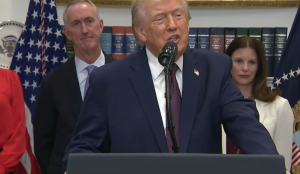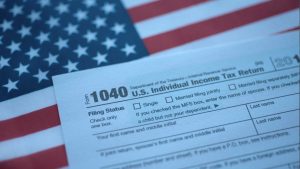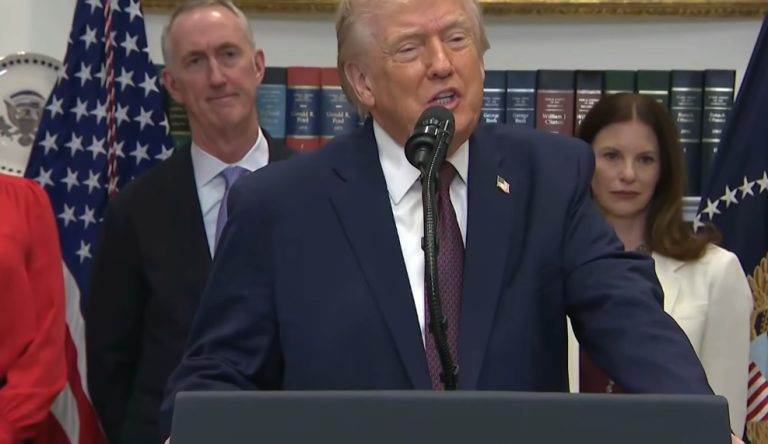The Trump administration has ordered states to reverse steps taken to distribute full Supplemental Nutrition Assistance Program (SNAP) benefits for November, escalating tensions over the longest government shutdown in U.S. history. The directive, issued late Saturday by the U.S. Department of Agriculture (USDA), has left millions of Americans reliant on SNAP in uncertainty, as the legality of withholding the funds is now being weighed in courts.
The memorandum from the USDA instructed regional SNAP directors that states which began sending full November payments were not authorized to do so. “Accordingly, States must immediately undo any steps taken to issue full SNAP benefits for November 2025,” the memo stated. Officials were also directed to notify the appropriate Food and Nutrition Service (FNS) regional office representative of any corrective measures undertaken to comply with the order. The memo warned of potential repercussions for noncompliance, including cancellation of the federal share of state administrative costs and holding states liable for any overissuances that result from failing to follow the directive.
SNAP, commonly known as food stamps, is a critical program that assists approximately 42 million Americans in purchasing groceries for themselves and their families. The program’s disruption comes amid the ongoing government shutdown, which began on October 1, 2025, making it the longest in U.S. history. With the shutdown entering its 40th day, disruptions to essential federal services have become widespread, affecting millions of Americans.
The suspension of SNAP benefits has particularly profound implications for vulnerable populations. Many low-income families, seniors, and individuals with disabilities rely on the program as a primary source of nutrition. Pausing benefits in the middle of a month creates uncertainty about how these families will manage household food expenses, especially with the upcoming Thanksgiving holiday, a period when grocery costs typically rise.
The shutdown has also affected hundreds of thousands of federal employees who have been furloughed or forced to work without pay. Among the most visibly impacted are air traffic controllers, employed by the Federal Aviation Administration (FAA) with federal funds. Controllers who have gone without a paycheck for over a month are increasingly reporting absenteeism, prompting the FAA to ground thousands of flights in advance of the Thanksgiving travel period. This cascading disruption underscores the broader economic and social impact of the shutdown beyond the direct effects on SNAP recipients.
The fight over SNAP funding has been further complicated by legal interventions. Although the USDA initially intended to pause benefits starting on November 1, a court in Rhode Island temporarily ordered the Trump administration to continue distributing payments using emergency funds. A filing on November 3 indicated that the USDA was complying with the court’s directive and would fulfill its obligation to expend the full amount of SNAP contingency funds.
Despite this ruling, President Donald Trump reiterated in a November 4 Truth Social post that his administration would withhold SNAP benefits until the government shutdown is resolved. The administration subsequently appealed the lower court ruling, but no updated action has yet been implemented. The Supreme Court intervened to temporarily stay the Rhode Island order, allowing the Trump administration to avoid distributing November’s benefits while the legal proceedings continue.
The dispute highlights the broader political and policy standoff surrounding the government shutdown. Republicans, led by the administration, have used the pause of federal programs like SNAP as leverage in negotiations with Democrats, who are pushing to maintain essential services for millions of Americans. Democrats have called for emergency measures to extend funding for SNAP, warning that pausing benefits during the ongoing shutdown would exacerbate food insecurity nationwide.
Critics argue that withholding SNAP payments undermines the program’s fundamental mission of supporting low-income Americans and threatens the well-being of millions who are already struggling financially. Advocates for the program emphasize that SNAP benefits not only provide immediate relief to households but also stimulate local economies, as recipients use the funds to purchase groceries at retailers, thereby supporting jobs and businesses across the country.
The USDA’s memo explicitly warned states about potential consequences for noncompliance. By threatening to cancel the federal share of state administrative costs, the administration has placed additional pressure on states to reverse the payments quickly. States are now in a difficult position, balancing adherence to federal directives with the immediate needs of residents who depend on the benefits. Some states have already begun consulting legal counsel to navigate the conflicting directives and to prepare for potential litigation regarding the reversal of payments.
The legal uncertainty has left SNAP recipients in limbo. Families who expected full benefits at the beginning of November may face significant shortfalls in their household budgets if payments are rescinded. Community organizations and local food banks are bracing for increased demand, as households seek alternative sources of support. The disruption also underscores broader systemic vulnerabilities in federal assistance programs during prolonged political stalemates.
Economists warn that prolonged interruptions to SNAP could have ripple effects across the national economy. Millions of households rely on SNAP to cover basic food needs, and reductions in benefits could decrease consumer spending in local grocery stores and related sectors. This effect may be particularly pronounced in low-income communities, where SNAP funds represent a significant portion of household income.
The Trump administration has defended its actions as a necessary step during the government shutdown, framing the pause of SNAP benefits as part of broader fiscal and political negotiations. Administration officials argue that continuing to fund programs at existing levels without resolving the shutdown would strain federal resources and undermine broader budgetary priorities. However, opponents contend that using SNAP as a bargaining chip is ethically and practically problematic, as it directly affects the most vulnerable Americans.
Legal scholars and advocacy groups are closely monitoring developments. The Supreme Court’s temporary intervention highlights the ongoing tension between executive authority, state administration of federal programs, and judicial oversight. While the legal process unfolds, millions of SNAP recipients remain uncertain about when—or if—they will receive their expected benefits.
In addition to SNAP, other federal programs have experienced disruptions due to the shutdown. Federal employees continue to work without pay, government services have slowed or halted, and emergency management agencies are operating under constrained conditions. The cumulative effect of these disruptions illustrates the extensive consequences of a prolonged political deadlock on both everyday citizens and national infrastructure.
As the standoff continues, public opinion remains sharply divided. Supporters of the administration argue that halting payments is a justified measure to incentivize lawmakers to resolve the shutdown. Critics counter that the approach punishes Americans for political impasses beyond their control, particularly affecting those who rely on federal assistance to meet basic needs. The ongoing debate raises fundamental questions about the balance between political leverage and humanitarian responsibility in federal governance.
The USDA memo and subsequent Supreme Court intervention are likely to be focal points in continued litigation and political discussions. States, advocacy organizations, and congressional leaders will need to navigate the complex intersection of legal obligations, administrative capacity, and public expectations. The outcome will have significant implications not only for November SNAP benefits but also for the future administration of federal assistance programs during periods of government shutdown.
In the meantime, millions of Americans face uncertainty regarding their access to essential food support. Community organizations, state agencies, and social service networks are mobilizing to provide guidance, resources, and emergency aid, anticipating potential gaps in assistance. The situation underscores the critical importance of SNAP as a safety net program and the real-world consequences of federal-level political standoffs on vulnerable populations.
The ongoing legal and administrative developments around SNAP benefits serve as a stark reminder of the broader societal costs of the government shutdown. While policymakers negotiate, households dependent on federal aid continue to navigate day-to-day challenges, balancing limited resources against the rising costs of living. The outcome of the legal proceedings will shape not only the immediate distribution of benefits but also the precedent for handling federal assistance programs in future shutdowns.
As of now, the fate of November SNAP benefits remains uncertain, contingent upon both judicial review and the resolution of political negotiations. States are under direct instruction from the USDA to reverse any full payments already issued, while courts weigh the legality of the administration’s directive. Millions of Americans, advocacy groups, and state agencies continue to monitor the situation closely, recognizing the immediate human impact of the policy decision.

Sarah Mitchell is a bestselling novelist recognized for her insightful and emotionally resonant stories that explore the complexities of human relationships. Originally from Denver, Colorado, Sarah grew up in a family of teachers who nurtured her curiosity and love for storytelling. She studied psychology at Stanford University, where she became fascinated by the intricacies of human behavior—an interest that would later shape her writing career. Sarah’s novels are praised for their nuanced characters, intricate plots, and ability to capture the subtle tensions that define love, friendship, and family ties. Her breakthrough novel, The Spaces Between Us, became an instant bestseller, lauded for its honest portrayal of strained family relationships and the fragile bonds that hold people together. Since then, she has published several works that continue to captivate audiences around the world. Outside of her writing career, Sarah is passionate about mental health advocacy and often partners with organizations to promote awareness and support for those struggling with emotional well-being. Her personal life is quieter—she enjoys hiking in the Colorado mountains, practicing yoga, and spending time with close friends. With each new book, Sarah Mitchell cements her reputation as a writer who illuminates the beauty and struggles of human connection.









